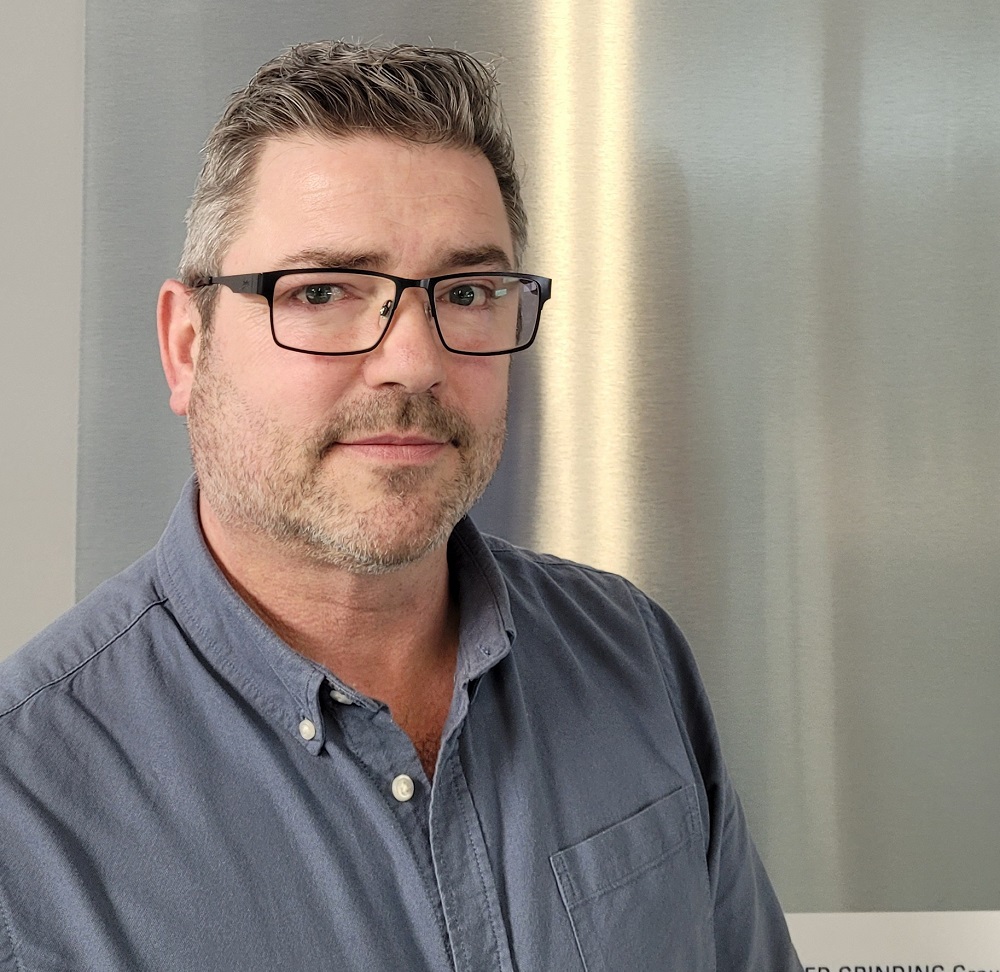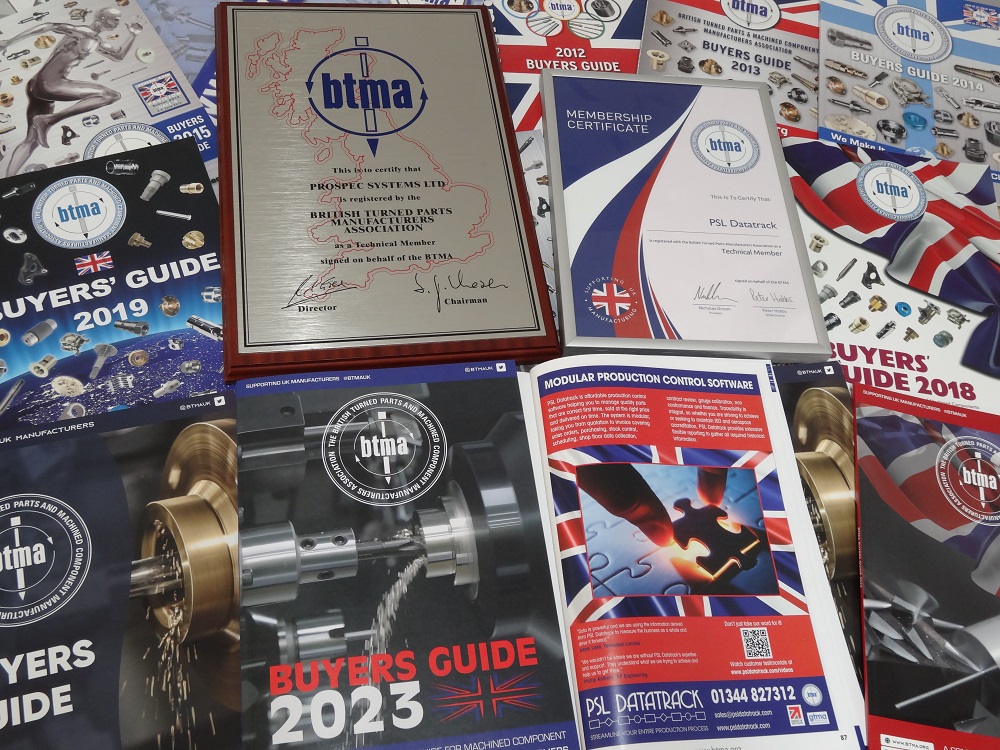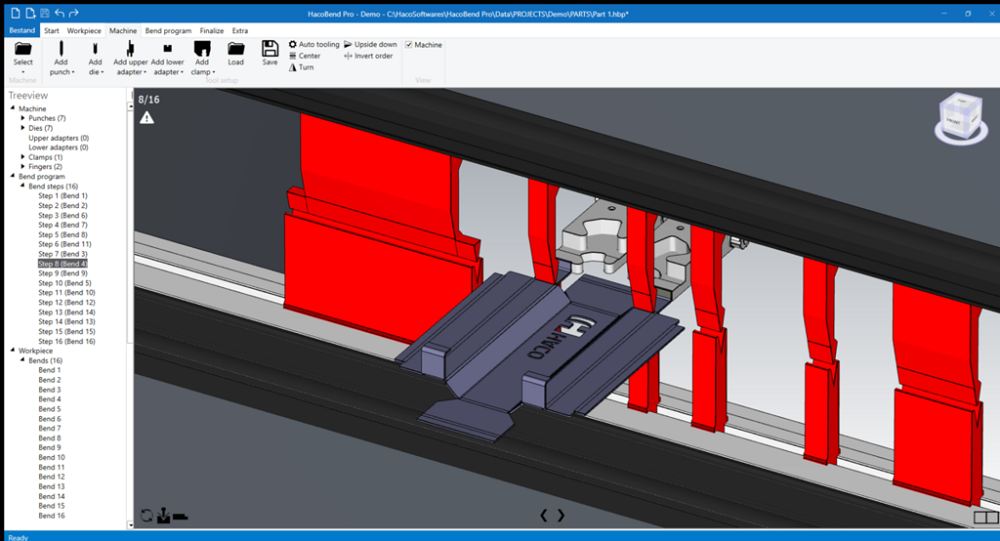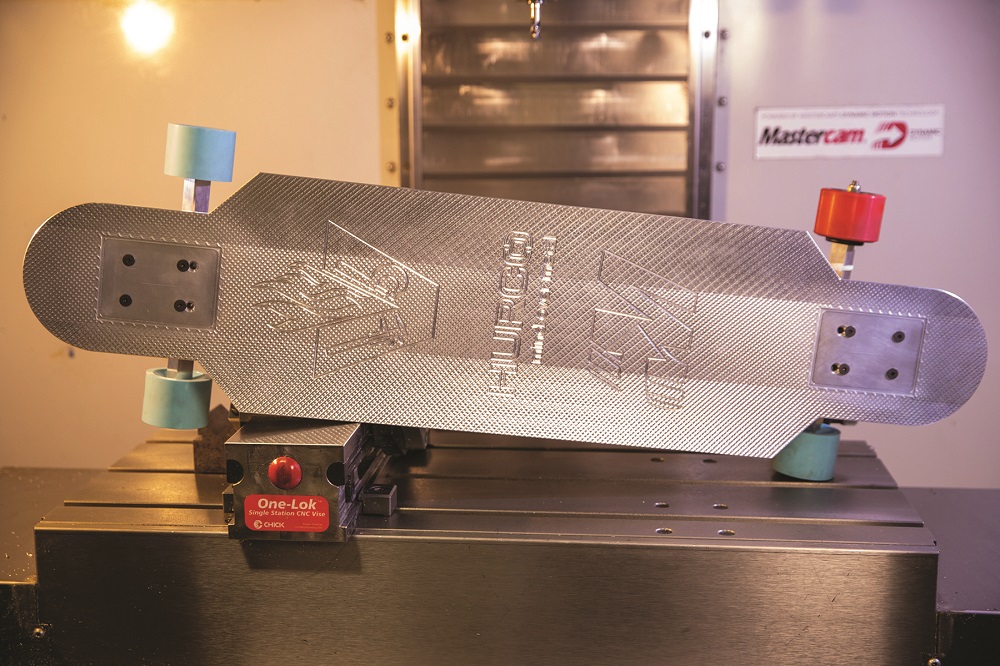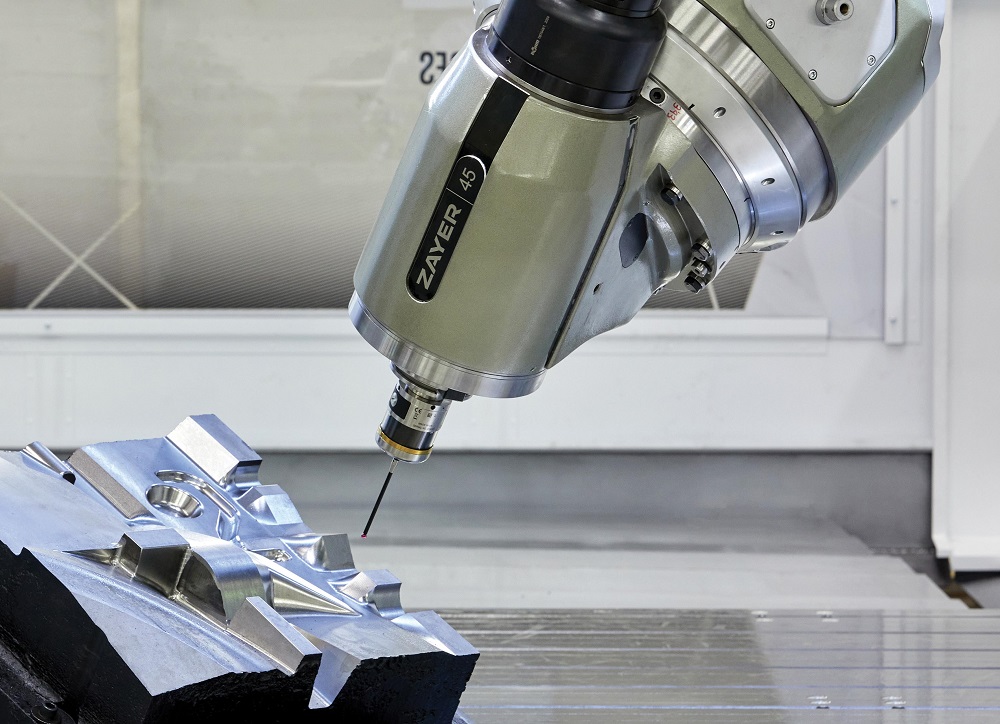Hacois introducing new bending software, HacoBend Pro,which includes both an in-house developed CAD module and CAM software. With the CAD software, users can draw 3D parts for bending or import and modify external files (STEP/IGS) smoothly and accurately. The CAM module automatically generates a bending program and a correct unfolding of the workpiece.
HacoBend Pro is a software package for the offline programming of press brakes. Through a highly visual easy-to-use interface, Haco says that users can create efficient bending programs in a simple and fast way, allowing operation of the machine in a more optimal way. A smart and fast bend sequence calculation with automatically generated back-gauge positions and an optimised tool set-up contribute to faster machine set-up and cycle times.
In addition, a correct unfolding of the sheet takes into account the type of material and tool selection.
With the integrated CAD module, it is possible to create technically correct bent 3D parts, taking into account the correct bending radii and the required corner cut-outs. Thanks to HacoBend Pro, the company says that users can enjoy greatly reduced programming times, minimised set-up times and right-first-time components.
New features in the HacoBend Pro include: an easy-to-use interface; bend sequence determination with automatic back-gauge calculation; optimised tool set-up; suitability for special bends such as Z bends; dynamic simulation; a user-friendly CAD module for both 2D and 3D design; and correct unfolding in DXF.
Throughout the entire process, the operator/setter receives assistance in selecting tooling, calculating an optimal bending sequence and positioning the back-gauge.
For further information www.kingsland.com






